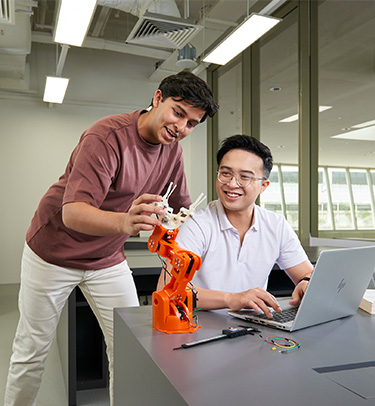Based on the Global Risks Report 2022 by the World Economic Forum (WEF), environmental and social costs related to climate change are identified as one of the top threats to the world in the coming decade. To combat the challenges of climate change, targets to reduce the carbon footprint were set forth in the United Nations’ 2030 Sustainable Development Agenda.
Which Areas Do the Singapore Economy Need Green Engineering?
The Singapore Green Plan 2030 and IES Green Plan 2030 have outlined engineering-centred plans for the next seven years. The main objective of these initiatives is to utilise engineering methods to decrease carbon emissions throughout Singapore’s supply and value chains. Against this backdrop, training engineers in environmental sustainability becomes a crucial moving part of the engine.
Individuals aspiring to enter the industry will also be expected to contribute to the five main pillars of the Singapore Green Plan, namely Urban Nature, Eco-friendly Living, Energy Transformation, Sustainable Economy, and Climate Resilience. More specifically, greater demand for engineers’ involvement is expected in the following areas of both plans:
1. City in Nature and Sustainable Living
The City in Nature pillar focuses on the development of a sustainable, habitable, and eco-friendly environment in Singapore. This is achieved through expanding green spaces and collaborating with the community to restore and preserve nature island-wide.
Meanwhile, the Sustainable Living pillar strives to integrate carbon reduction, environmental cleanliness, and resource and energy conservation into Singaporeans’ daily lifestyles. Given this context, the need for environmental engineers with green engineering skills is likely to increase, as it involves incorporating life-cycle thinking design principles for the following purpose:
- Create products that support
- Minimise environmental risks, waste, and the depletion of natural resources.
- Preserve and enhance natural ecosystems.
2. Energy Reset
The Energy Reset pillar focuses on utilising cleaner energy sources and improving energy efficiency to reduce Singapore’s carbon footprint. Applications of this include emphasising adopting green vehicles and advancing research in blue energy through water reclamation.
Besides the transition to green energy, efforts will be made to decarbonise sectors, including the built environment, aviation, and marine industries, and reduce energy consumption in towns and districts. With this shift, the following engineering skills will grow in importance in the economy:
- Sustainable engineering: This skill can optimise energy efficiency and improve environmental performance through the development, construction, and operation of engineering systems and assets in a way that achieves this.
- Energy management and audit: This skill oversees the optimisation of systems’ energy efficiency and effective management of energy consumption.
- Environmental sustainability management: This skill aids in reducing emissions throughout a company's upstream and downstream value chain.
- Renewable energy system management and integration: This supports the evaluation of the effects of integrating renewable energy systems into the energy grid.
3. Green Economy
The Green Economy pillar aims to create new employment opportunities to support the move towards a sustainable future. Examples of potential growth areas in Singapore are Energy Storage Systems (ESS), solar and smart grids.
This gives rise to various opportunities for aspiring engineers arising from the demand for professionals skilled in the following areas:
- Implementing traditional and innovative solar photovoltaic (PV) systems.
- Providing engineering services and project management for battery ESS deployment.
- Managing distributed energy resources.
Engineer Singapore’s Green Future with PSB Academy
As Singapore transitions towards a green economy, it creates numerous exciting opportunities for the engineering sphere. If you enjoy problem-solving and championing environmental sustainability through your solutions, now is the perfect time to explore the industry, and this is where enrolling in one of PSB Academy’s engineering courses can prepare you for your future career:
- The University Of Newcastle, Australia Bachelor of Mechanical Engineering (Honours)
- The University Of Newcastle, Australia Bachelor of Electrical and Electronic Engineering (Honours)
- Coventry University Bachelor of Engineering with Honours in Electro-Mechanical Engineering
- Coventry University Bachelor of Engineering with Honours in Mechanical Engineering
- Coventry University Bachelor of Engineering with Honours in Electrical and Electronic Engineering
- Coventry University Master of Science in Engineering Management
Recognising the significance of forging a sustainable future, PSB Academy engineering courses have integrated sustainability-related modules in the curriculum or projects to ensure that we empower students to meet the needs of the future engineering sphere while honing their design thinking mindset.
By enrolling in one of PSB Academy's esteemed engineering courses, you can actively contribute to shaping Singapore's green future. At PSB Academy, we are committed to empowering students with a forward-thinking design mindset to meet the evolving needs of the engineering sphere while working towards a sustainable tomorrow.




 TOP
TOP


_2.png)


